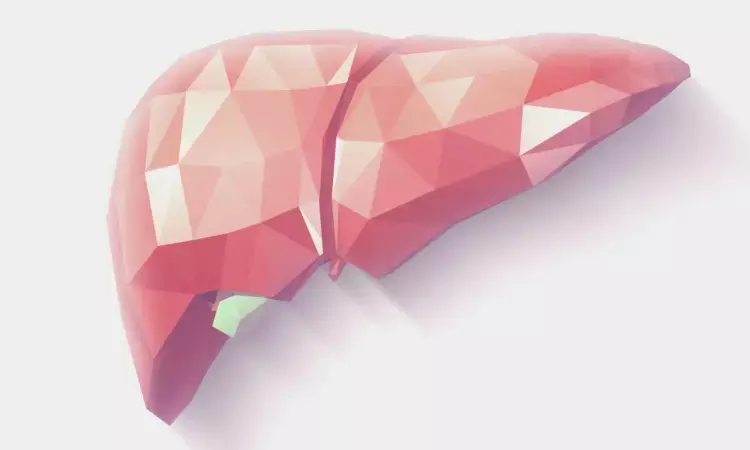- Home
- Medical news & Guidelines
- Anesthesiology
- Cardiology and CTVS
- Critical Care
- Dentistry
- Dermatology
- Diabetes and Endocrinology
- ENT
- Gastroenterology
- Medicine
- Nephrology
- Neurology
- Obstretics-Gynaecology
- Oncology
- Ophthalmology
- Orthopaedics
- Pediatrics-Neonatology
- Psychiatry
- Pulmonology
- Radiology
- Surgery
- Urology
- Laboratory Medicine
- Diet
- Nursing
- Paramedical
- Physiotherapy
- Health news
- Fact Check
- Bone Health Fact Check
- Brain Health Fact Check
- Cancer Related Fact Check
- Child Care Fact Check
- Dental and oral health fact check
- Diabetes and metabolic health fact check
- Diet and Nutrition Fact Check
- Eye and ENT Care Fact Check
- Fitness fact check
- Gut health fact check
- Heart health fact check
- Kidney health fact check
- Medical education fact check
- Men's health fact check
- Respiratory fact check
- Skin and hair care fact check
- Vaccine and Immunization fact check
- Women's health fact check
- AYUSH
- State News
- Andaman and Nicobar Islands
- Andhra Pradesh
- Arunachal Pradesh
- Assam
- Bihar
- Chandigarh
- Chattisgarh
- Dadra and Nagar Haveli
- Daman and Diu
- Delhi
- Goa
- Gujarat
- Haryana
- Himachal Pradesh
- Jammu & Kashmir
- Jharkhand
- Karnataka
- Kerala
- Ladakh
- Lakshadweep
- Madhya Pradesh
- Maharashtra
- Manipur
- Meghalaya
- Mizoram
- Nagaland
- Odisha
- Puducherry
- Punjab
- Rajasthan
- Sikkim
- Tamil Nadu
- Telangana
- Tripura
- Uttar Pradesh
- Uttrakhand
- West Bengal
- Medical Education
- Industry
Calcium-Channel Blockers Do Not Increase Variceal Hemorrhage Risk among hypertension patients with Cirrhosis: Study

A new study published in the journal of Clinical Gastroenterology and Hepatology showed that calcium-channel blockers (CCB) did not raise the risk of variceal hemorrhage (VH) in cirrhosis patients when compared to ACE inhibitors or angiotensin II receptor blockers (ARBs). This suggests that CCB are a fairly safe choice for controlling blood pressure in this population.
Esophageal varices and potentially fatal variceal hemorrhage are greatly increased by portal hypertension, which is typically caused by cirrhosis. Careful medication selection is necessary to manage coexisting hypertension in these individuals without raising portal pressure. The impact of calcium-channel blockers on the risk of variceal hemorrhage is still up for discussion, despite their widespread prescription.
When compared to other antihypertensives, current data indicates that CCBs do not raise the risk of variceal bleeding, which highlights the necessity for physicians to comprehend this connection in order to make better treatment decisions. Whether the vasodilatory impact of CCBs changes the risk of bleeding in cirrhosis patients is yet unknown, though. Thus, this study assessed the relationship between the usage of CCB and the risk of variceal bleeding in cirrhosis patients.
The patients with cirrhosis and no prior history of VH who were found in the Clinical Data Analysis and Reporting System of the Hospital Authority, Hong Kong between 2000 and 2023 were included in this territory-wide retrospective cohort research. Angiotensin-converting enzyme inhibitors (ACEIs) or angiotensin II receptor blockers were used as active comparators in an active comparator new-user design. For hypertension, either CCB or ACEI/ARB were started as monotherapy.
There were 827 ACEI/ARB users and 1,886 CCB users. VH incidence rates were similar for CCB and ACEI/ARB users after inverse probability of treatment weighting (7.42 vs. 10.50 instances per 1,000 person-years; p=0.116). For CCB and ACEI/ARB users, the 5-year cumulative incidence was 3.74% (95% CI 2.59%-4.87%) and 4.17% (95% CI 2.25%-6.05%), respectively. CCB usage and VH risk did not significantly correlate (adjusted sub distribution hazard ratio 0.967; 95% CI 0.616-1.518; p=0.880).
Overall, calcium channel blockers did not enhance the risk of variceal hemorrhage in individuals with cirrhosis when compared to ACEIs or angiotensin II receptor blockers. This suggests that calcium-channel blockers can be regarded as a secure antihypertensive alternative for this susceptible group, assisting in the selection of suitable drugs.
Source:
Dai, J., Cheuk-Fung Yip, T., Tse, Y.-K., Wing-Ki Hui, V., Lai-Hung Wong, G., Wai-Sun Wong, V., & Che-To Lai, J. (2025). Risk of variceal hemorrhage in patients with cirrhosis taking calcium-channel blockers. Clinical Gastroenterology and Hepatology: The Official Clinical Practice Journal of the American Gastroenterological Association. https://doi.org/10.1016/j.cgh.2025.11.010
Neuroscience Masters graduate
Jacinthlyn Sylvia, a Neuroscience Master's graduate from Chennai has worked extensively in deciphering the neurobiology of cognition and motor control in aging. She also has spread-out exposure to Neurosurgery from her Bachelor’s. She is currently involved in active Neuro-Oncology research. She is an upcoming neuroscientist with a fiery passion for writing. Her news cover at Medical Dialogues feature recent discoveries and updates from the healthcare and biomedical research fields. She can be reached at editorial@medicaldialogues.in
Dr Kamal Kant Kohli-MBBS, DTCD- a chest specialist with more than 30 years of practice and a flair for writing clinical articles, Dr Kamal Kant Kohli joined Medical Dialogues as a Chief Editor of Medical News. Besides writing articles, as an editor, he proofreads and verifies all the medical content published on Medical Dialogues including those coming from journals, studies,medical conferences,guidelines etc. Email: drkohli@medicaldialogues.in. Contact no. 011-43720751


